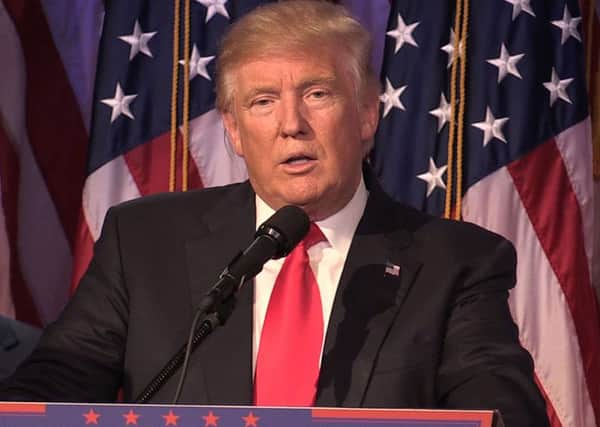Tim Coles: How Brexit handed power to global elite


Actually, the truth is darker and more complicated. And before you ask, it has nothing to do with conspiracies. It’s the normal workings of big business.
EU regulation has harmed domestic producers, especially farmers and the fishing industry. Famously, EU quotas have forced fishermen to throw their catches back into the sea. But, more importantly for big business – especially the financial sector – the EU has frustrated Britain’s efforts to enter into trade agreements with other countries, including Brazil, China, India and South Korea.
Advertisement
Hide AdAdvertisement
Hide AdIf you think it’s bad competing with French trawlers for fish, think how bad it will be for British farmers to compete with Brazilian beef. Or British car-makers to compete with more South Korean machines. Or what’s left of British steel to compete with China. The pro-Leave, pro-free market think-tank Open Europe even talks about the “creative destruction” of the British farming industry in the wake of Brexit.
As soon as Theresa May took office, the Cabinet was stacked with free market internationalists, including Philip Hammond (with his China deals), Liam Fox (who’s been courting American corporations) and Priti Patel (who co-authored a book in which British workers are called “among the worst idlers in the world”). Ex-Tory chancellor Nigel Lawson even wrote an article for the Financial Times entitled “Brexit gives us the chance to finish the Thatcher revolution”.
So, who wants to trade with us?
Across the pond, Donald Trump is hoping to rip up multilateral trade agreements – including the Trans-Pacific Partnership and the North American Free Trade Agreement – and make America more dominant by negotiating bilateral deals. There’s talk of a US-UK deal planned for next year. If US lobbying at the EU is anything to go by, Britain is at risk of importing more unlabelled genetically-modified foods from America, as well as hormone-disrupting pesticides, which the EU has tried to ban.
In poverty-stricken South America, after the soft coup that ousted Brazil’s socialist government, a right-wing administration came to power, cancelling social security programmes. That same government is now looking to do a deal with the UK. According to the National Farmers’ Union, Britain is already Europe’s gateway for Brazilian beef.
Advertisement
Hide AdAdvertisement
Hide AdIn the east, ex-Chancellor George Osborne welcomed the internationalisation of the Chinese renminbi via the London Stock Exchange. London could become an open door for China’s money as it was in the ‘80s for American money. And where’s the money for the so-called Northern Powerhouse coming from under Chancellor Philip Hammond? From China. Fifteen Chinese investors are in talks to develop places like Sheffield city centre and the Liverpool Waters docks. Still in the east: Brussels signed a Free Trade Agreement with South Korea in 2011. But Britain has been frustrated by its slow progress. South Koreans have some of the longest working hours and deepest wage inequalities in the developed world. How will British workers compete? Despite what Priti Patel says, Britons already work long hours, when they can find work.
Before the referendum, more than a thousand businesses signed a letter stating that Brexit would be bad for them and their workers. However, other much bigger businesses, particularly in the financial sector, had different ideas. Over a hundred signed a pro-Leave letter.
It’s doubtful whether the financial sector does anything for the so-called real economy of design, production, manufacturing and innovation. Mostly it makes money from speculation. Yet if you look at the pro-Leave funding sources, you’ll find that most of them came from multimillionaire and billionaire hedge funds and asset managers – hardly men of the working classes.
People who voted Brexit thinking they’d get their country back need to start organising against this new era of bilateral free trade deals. As bad as the EU was for certain sectors of the British economy, the next phase of globalisation could be even worse.
Tim Coles is the author of The Great Brexit Swindle, published by Clairview Books, price £10.99.